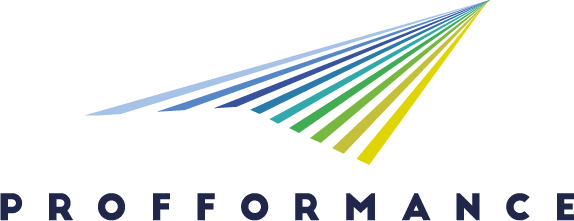MCI - NSHM Community Project Semester
Embedding SDGs in project-based teaching
- 04 – Business, administration and law
- 09 – Health and welfare
1. Student-centered course design
In the fourth semester of the bachelor's program Nonprofit, Social and Health Management (NSHM) at MCI presented in this application, students work in groups on a practical project with explicit reference to existential societal challenges, together with cooperation partners. Project description Within the framework of three majors (Nonprofit, Social or Health Management) and across six courses, small groups develop and carry out "NSHM Community Projects". Students are guided in the conception, implementation, analysis and interpretation of their research by practice partners, external and internal lecturers. The courses Practice Lab, Integrative Projects, Current Concepts, Method Coaching, Innovation Management and Social Business are interlinked and the students invest 750 working hours (30 ECTS) in the respective project. The semester starts with a participative symposium on a topic area related to the SDGs (2020: Social Responsibility; 2021: The Future of Work; 2022: A Chance for a Change - Climate - Change - Society) with a number of speakers who refer to the SDGs in their presentations. A variety of faculty, practice partners, alumni and external presenters, in particular the MCI Center for Social and Health Innovation, are involved in the projects. Learning objectives Knowledge and skills in the areas of "SDGs and sustainable management" and "project management" are taught and built in a lasting and effective way. Students take responsibility for a project, a team, the deliverables, and communication with the practice partner and are guided by faculty throughout the process so that reflection and learning are encouraged. Other learning objectives of the semester include deepening digital literacy, conflict management, communication skills, soft skills, agile project management, critical and reflective thinking, methodological skills, social business planning, dealing with setbacks, entrepreneurial and innovative skills. Results Students give feedback and rank their learning achievements in a survey at the end of the semester. The projects are very diverse and change every year, thus the approach described above can easily be transferred to another context. Through this initiative, MCI aims to raise awareness and engagement among students and to contribute to the public community. The table "Projects 2020 + 2021" provides abbreviated information about the topics, the practice partners involved and the SDGs related to the project (see attachment).
Methodology
Tools, equipment, technology used
Outcomes and outputs, main results
Lessons learnt
Adaptability and sustainability of the best practice (for other institutions)
Promotion of best practice
Scope and impact
- Course/department level
- Faculty level
- Institutional level
- Cross-institutional level
- National level
- EU/EHEA/International level
6.1 Digitalization
- Outstanding, innovative, excellent practices of online / blended / hybrid learning
- Digital skills development and assessment both general and profession-related, embedded in course design, in teaching and assessment
Reasoning: The Digital Campus and blended learning are established practices in the program. The Learning Management System SAKAI serves as backbone for the communication between students and lecturers in order to save and communicate documents, resources, assignments, grading rubrics and general announcements. By using MS-Teams, Trello and website creation, students exercise and improve their digital communication skills permanently. Furthermore, students have to set up a website to present their project.
6.2 Internationalization
- Outstanding practices of international online collaborative learning
- Developing students' multicultural awareness
- Students engagement in international projects
- Courses implemented in international cooperation (projects, co-teaching, virtual/blended mobility, etc.)
- Courses offered to international multicultural students both online and offline
Reasoning: Every year at least one of the projects deals with an international organization or cross-border-cooperation, e.g. cross-border school and community partnerships in Italy / Austria, or supporting social businesses in Uganda regarding their market entry in Europe. Engaging in those projects, students develop multicultural awareness. Furthermore, exchange students from partner universities participated in the practice semester, the courses were offered mainly online and partly offline.
6.3 Inclusion and diversity, universal design
- Inclusive course design, universally designed divers activities to meet special students' needs
- Universally designed teaching material - adjustable for special needs
- (Innovative) use of devices and tools for inclusion
- Alternative, flexible assessment methods for students with special needs
Reasoning: MCI student support is in place with an ombudsperson for students with special needs. Students with disabilities or chronic diseases are entitled to alternate examination methods if they are unable to participate in regular examinations. It is possible, e.g., to change the type of an exam or to grant extra time for the completion of a course. Lecturers respect special needs and support the students, e.g. in one case in the past an amplifying device was used as one student was hearing impaired.
6.4 Sustainability
- Sustainability goals are addressed in the course(s)
- Teaching material contains profession related sustainability aspects
- Special courses reflecting to UN 2030 Sustainability goals, Green Deal - mini-courses, microcredentials
- Social entrepreneurship projects, service-learning in the topic
Reasoning: The UN Sustainable Development Goals are the overarching framework for the study program and all challenges have a focus on SDGs. Most projects are related to social entrepreneurship. Sustainability is addressed in the course materials, on the learning platform and especially emphasized during the introduction of the semester. The semester starts with a symposium with the title “Chance for a change. Climate - Change - Society.”

